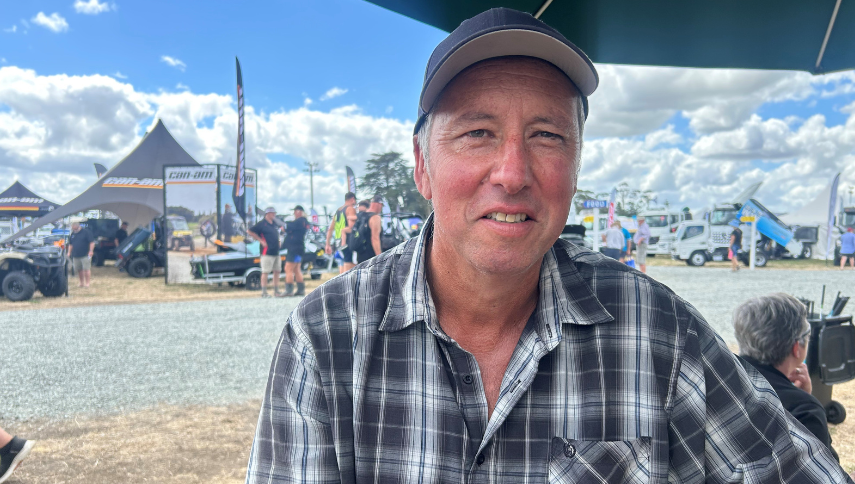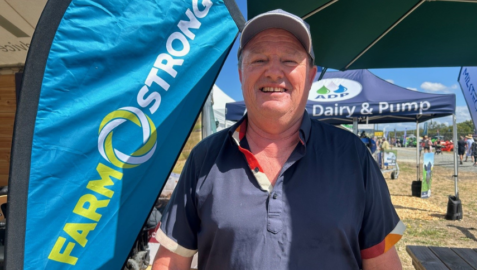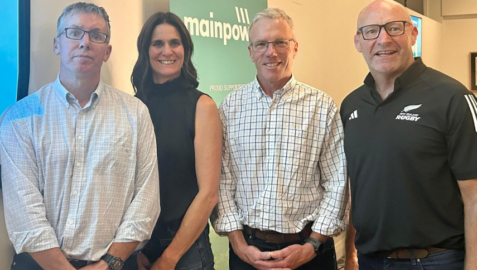
A Friendly Ear
Module Overview
A catch up over a cup of tea or a beer can make a huge difference to people doing it tough says Northland dairy farmer Colin Simpson.
How long have you been farming Colin?
I’ve been farming since I left school forty-two years ago. We run a dairy and dry stock farm. We started out with a small farm, so I worked as a contractor for many years to bring in extra income. Now it’s evolved to a much bigger operation and we look after 600 hectares. It’s a family farm. My wife and I are still involved and we’ve got four staff.
You must’ve seen your fair share of challenges along the way.
We’ve had droughts from time to time, but farmers are great at supporting each other, whether it’s your neighbours or farmers from other districts. I think what goes around comes around.
How do you manage the pressures of farming? Any advice?
You need to get out and about. That’s the big thing. Don’t just stay on your farm. That’s why I’m still doing things like coming along to Fieldays.
The other thing is make use of the professionals that are out there like the farm reps and listen to their advice. You don’t have to do it all yourself.
Do you get off farm much to rest and recover?
I like a bit of fishing. I also like taking on new challenges. I recently brought an 11 hectare block of land and I’ve been slashing scrub to get that into shape. I enjoy having that sort of project on the go.
What’s your advice for farmers who might be ‘feeling under the pump’?
Don’t bottle things up. When things are tough, you just need to get out and talk to people. That’s my best advice. Join a rugby club or some other type of group. Catch up with mates for a drink or a coffee. Don’t just stay at home.
Does that relieve the pressure?
Yes, it does. Working as a contractor taught me a lot, especially when the dairy pay out was low. It was amazing the number of farmers that you didn’t see out socially, but when you went to their place they just wanted to talk. Sometimes they talked so much they were holding you up from doing the work! [laughs]
Even if you find just one other person to tell how you’re feeling, that will help you feel a lot better if you’re feeling stressed. Whether it’s your partner, boss, colleague or a relative, everyone needs to be able to confide in someone. As farmers we need to support each other.
You’ve done a lot of work to support your community over the years, what have you learnt?
No one is immune to stress and pressure in farming. That’s why it’s important that we share the load and talk about these issues as a community. What do they say? A problem shared is a problem halved. I think that’s true. You can’t carry it all alone. I’ve benefited from those chats myself and I’m sure others have to.
What’s the key to making a convo like that work?
Keep it social and relaxed. You don’t need a degree in psychology to be able help others. You just need to turn up and listen. Meet up at a pub or café or make time for a proper catch up. Just turning up and having a yarn can work wonders.
Are people looking for solutions?
No, they’re not. One thing I’ve learnt over many years is that you don’t need to solve people’s problems. They usually have their own answers already, they just need a bit of support and a friendly ear to nudge things along.
Listening like that is a skill, isn’t it?
Listening is something we can all get better at. There’s some really good tools and tips on the Farmstrong website from other farmers on how to have a listening conversation. If you’re worried about not knowing what to do, I’d recommend starting there.
Do you think it’s important for farmers to look after themselves as well as their land and stock?
Yes, I do. If you’re not in a good space, you’re not going to be much use to the farm, or much good to anyone really. So, it’s important to be aware of your wellbeing and look out for other people.
What advice would you offer someone starting out in dairy farming?
Don’t chain yourself to the cow shed. We’ve got two dairy farms and they’re both on once-a-day milking. That means you can do your jobs and then go and do something with your family in the afternoon.
We think of that as a successful day, having a whole life as opposed to never leaving the property. I like my cows, I like farming, that’s why I’m doing it, but I like people and I like doing other things too.
What makes a good listener? Farmstrong’s Top Tips
A good listener:
- is comfortable with silence and lets the other person talk
- is not distracted during the conversation
- is curious and asks questions
- keeps an open mind and is non-judgemental
- resists jumping in with solutions to other people’s problems
- starts with simple questions like ‘how are you getting on?’.
Farmstrong is a nationwide, rural wellbeing programme that helps farmers manage the pressures of farming and growing. Last year, 15,000 farmers and growers improved their wellbeing thanks to Farmstrong. If you want to brush up on your listening skills head to www.farmstrong.co.nz for free tools and resources.


